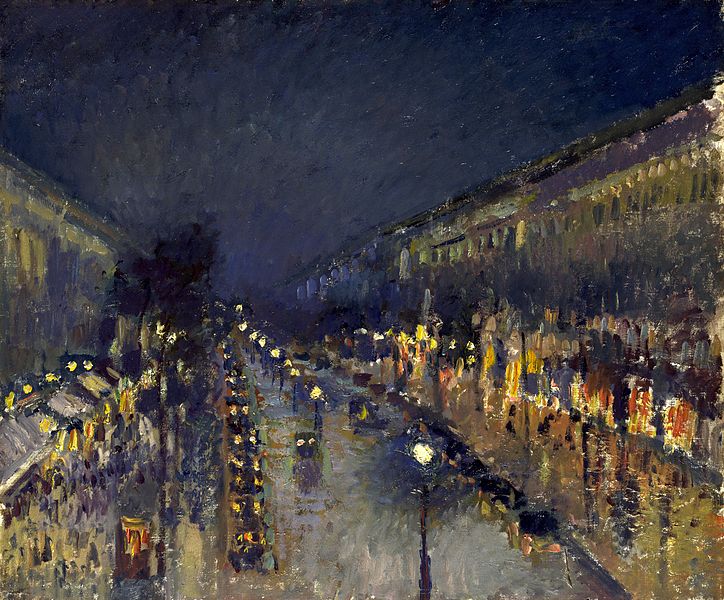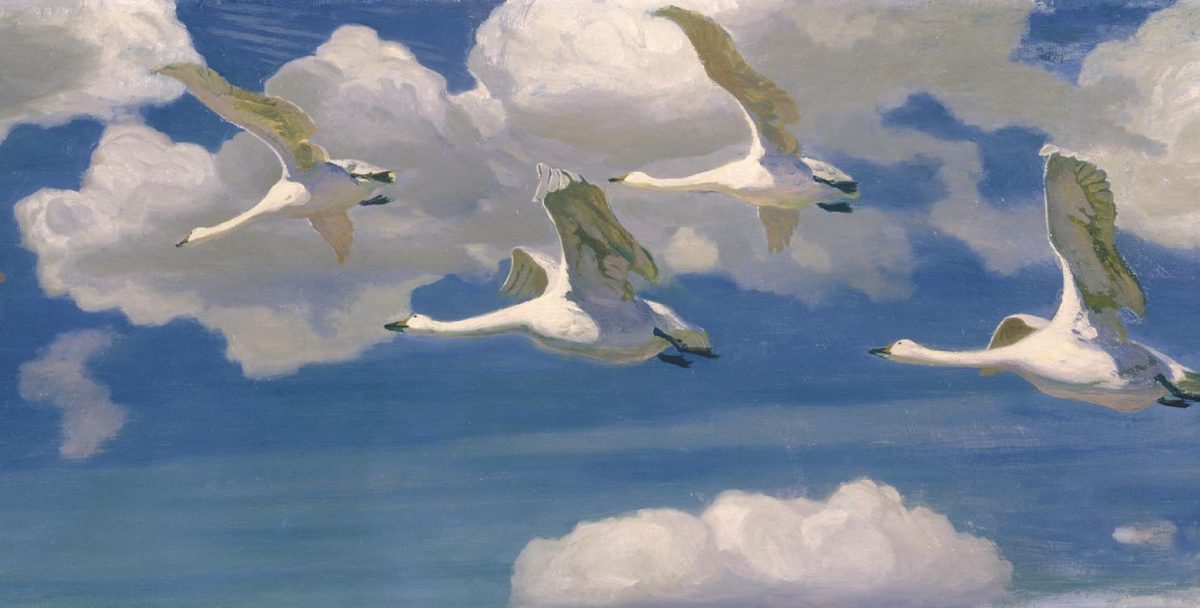I haven’t looked at the Ekphrastic prompts in a while, but this Pissarro brought back too many memories not to join in.
Thank you to Lorette at Ekphrastic Review for selecting my piece of prose. You can read all of the chosen pieces here.

That was then
A rain of light, a jewel box, Paris nights on the grands boulevards were brilliant then. Roof slate, slick-glittered purple and midnight blue, and the hot gold of music poured from brasseries, peals of laughter, and the click-clack of hoofs, water-splashing.
The echoes lingered long, so long I heard them before they faded. Les filles were the same, the paint, the pose, the clatter of plates, chink of glasses, and the brassy yellow light, smelling of choucroute and bright red lobster corpses. Waiters, white shirted, black tied and aproned, swooped like swallows, and in the dark all cars were Tractions.
But the vibrant, multi-layered social architecture of the Impressionists, Piaf, Simenon, Jean Gabin and Zola was changing. In the streets behind the glitter, the girls waiting in dark doorways, cats at windows, washing hanging out to dry, music blaring, voices shouting in scènes de ménage, all were slowly being tidied away, pushed out beyond the périphérique into the soulless suburbs, so the rich of the world could have the playground of lights, the rain slicking off purple slate all to themselves.
What was once a city of squalor and beauty, misery and merveilles, a noisy colourful cacophony of sounds and smells, of rain and refuse in streets where satin shoes and buttoned boots trod, where urchins followed red balloons, is now a cemetery inhabited by ghosts, as at home here as in Dubai, New York, London.
They have it all now, squeezed of life and colour, cleansed of its ordinary people, workers, families, old folk with their chairs out on the pavements, babies in prams, dogs, street vendors and prostitutes. The argot of the titis parisiens has been replaced by sanitised interactions in the universal language of wealth, and the Paris of Maigret, Montand and Monet is dead.


